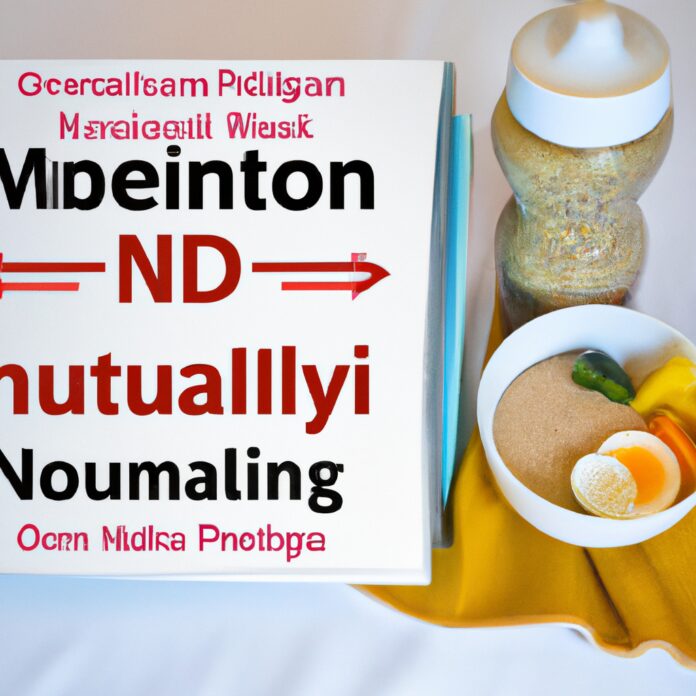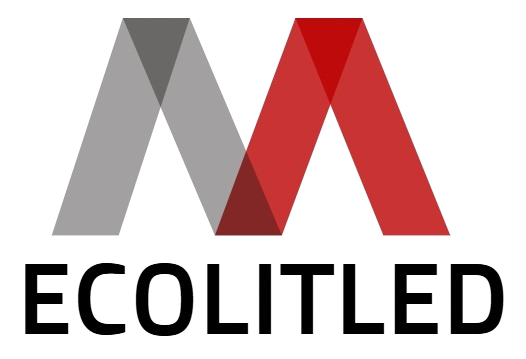In the journey of motherhood, it’s not just the mom who needs to be taken care of. The little one growing inside her needs to be nurtured too and provided with all the necessary nutrients for a healthy development. And what better way to achieve this than with optimal nutrition during pregnancy. A balanced, nutrient-rich diet is essential for both mom and baby to ensure a smooth pregnancy and a healthy arrival. In this article, we’ll explore the importance of optimal nutrition during pregnancy and provide useful tips for nourishing both mom and baby.
1. Understanding Optimal Nutrition During Pregnancy for a Healthy Mom and Baby
As an expectant mother, it is crucial to make sure that you are providing your growing baby with the best possible nutrition. A healthy diet can help to ensure that your baby develops properly and is delivered at a healthy weight with a reduced risk of complications. Optimal nutrition during pregnancy can also help support your own health throughout this challenging time.
The building blocks of any healthy pregnancy diet are protein, fruits and vegetables, whole grains, and healthy fats. These foods provide the essential nutrients that both mom and baby need to thrive. Pregnant women should aim to consume approximately 75 grams of protein each day from sources such as lean meat, poultry, fish, and legumes. Fruits and vegetables should make up a large proportion of the diet, providing vitamins, minerals, and fiber. Whole grains such as quinoa, brown rice, and oats can help to keep blood sugar levels stable and provide B vitamins, while healthy fats from nuts, seeds, and oily fish can help support both brain and eye development.
While it’s important to focus on consuming nutrient-dense foods during pregnancy, it’s also important to pay attention to what you’re avoiding. Certain foods, such as unpasteurized dairy products, raw or undercooked meat, and certain types of fish (such as swordfish and mackerel) can carry harmful bacteria or toxins. It’s also important to limit caffeine to no more than 200 milligrams per day, which is roughly one 12-ounce cup of coffee.
Eating well during pregnancy can help to ensure that both you and your baby get the nutrients you need to stay healthy and strong. However, every woman’s nutritional needs will vary depending on factors such as weight, age, and activity level. Talk with your healthcare provider or a qualified nutritionist who can help you create a customized meal plan that works for you and your growing baby.
2. The Comprehensive Guide to Nurturing the Nutritional Needs of a Growing Baby
Ensuring the nutritional needs of a growing baby is vital for their healthy development. It’s a great responsibility, but with the right knowledge and resources, it can be an enjoyable journey for both the baby and parents. Here are some tips to help in nurturing your baby’s nutritional needs.
1. Breastfeeding or Formula
Breast milk is the best food for a baby’s growth. It contains antibodies that can protect the baby against infections and provides all the essential nutrients the baby needs for the first six months of life. For mothers who are unable to breastfeed, infant formulas are available as an alternative.
2. Solid Foods
Babies typically start solid food at the age of six months and should be introduced gradually alongside breast milk or formula. Begin with a small amount of pureed or mashed vegetables such as sweet potatoes, carrots, or peas. Fruits such as mashed bananas or applesauce can also be introduced.
3. Nutrient-rich foods
As babies grow, they require essential nutrients such as protein, calcium, iron, and vitamins to aid in their development. Offer vegetables, fruits, whole grains, lean meats, and dairy products in their diet to ensure they’re getting the right amount of nutrients.
4. Monitor food allergies and intolerances
Babies can develop allergies to certain foods as their immune system develops. This can lead to symptoms such as rashes, vomiting, or diarrhoea. It’s important to be cautious when introducing new foods, and parents should be vigilant of any symptoms and consult a healthcare professional if necessary.
Nurturing a baby’s nutritional needs can be a rewarding experience. With patience and the right knowledge, parents can help their baby develop healthy eating habits that will last them a lifetime.
3. Fueling Your Pregnancy: The Ideal Nutrient Profile for Mom and Baby
During pregnancy, a mother’s nutrient needs increase significantly. Proper fueling is essential not only for the mother but also for the growth and development of the baby. The ideal nutrient profile for mom and baby should consist of a balanced intake of whole foods containing carbohydrates, proteins, fats, vitamins, and minerals.
Carbohydrates: Complex carbohydrates provide a slow, steady source of energy and fiber, both of which are essential during pregnancy. Vegetables, whole grains, legumes, and fruits are all excellent sources of complex carbohydrates. Eating enough fruits and vegetables during pregnancy also ensures that you get enough vitamin C, which is essential for developing a healthy immune system in the baby.
Proteins: Proteins are necessary for the growth and development of fetal tissues, including muscles, bones, and organs. During the second and third trimesters of pregnancy, a woman should consume about 80-100 grams of protein per day. Good sources of protein include lean meats, fish, eggs, quinoa, tofu, and beans.
Fats: Adequate intake of healthy fats, including omega-3 fatty acids, is essential for fetal brain development. Pregnant women can obtain healthy fats from foods such as fatty fish, avocados, nuts, and seeds.
Vitamins and minerals: A wide variety of vitamins and minerals are necessary during pregnancy for the development and health of the baby. These include iron, folate, calcium, vitamin D, and vitamin B12. Supplementation may be necessary to meet the recommended daily intake of these nutrients.
Overall, a balanced and varied diet combined with prenatal vitamins can help ensure that both mother and baby receive the necessary nutrients for a healthy pregnancy and childbirth.
4. Optimal Nutrition for Mom-to-be: Essential Vitamins and Minerals for a Healthy Pregnancy
During pregnancy, your body requires a higher intake of vitamins and minerals to support the growth and development of your growing baby. Here are some essential vitamins and minerals that pregnant women should include in their diet:
Vitamin D
Vitamin D is essential for the development of your baby’s bones and teeth. It also supports your immune system and helps your body absorb calcium. Sun exposure is the best natural source of vitamin D, but you may also need to take a supplement to meet your daily needs.
Folic Acid
Folic acid is crucial for the development of your baby’s brain and spinal cord. It can also reduce the risk of birth defects such as spina bifida. You can find folic acid in leafy greens, beans, fortified cereals, and supplements.
Iron
Iron is required for the formation of red blood cells that transport oxygen to your growing baby. Iron deficiency during pregnancy can lead to anemia, causing fatigue and low birth weight. You can find iron in red meat, beans, leafy greens, and fortified grains.
Calcium
Calcium is essential for the development of your baby’s bones and teeth. It also helps regulate your blood pressure and supports your nervous system. You can find calcium in dairy products, leafy greens, and fortified foods.
5. Importance of a Balanced Diet During Pregnancy: The Benefits of Eating Everything in Moderation
A balanced diet is key to a healthy pregnancy, both for the mother and the developing baby. Eating everything in moderation is the best way to make sure you’re getting the nutrients you need. Here are some benefits of a balanced diet during pregnancy:
1. Boosts Baby’s Development: Eating a variety of foods from each food group can help ensure that your baby gets all the essential nutrients and vitamins for healthy growth and development.
2. Reduces Risks of Complications: A balanced diet can help reduce the risks of complications during pregnancy such as gestational diabetes, hypertension, and pre-eclampsia.
3. Maintains Healthy Weight: Eating healthy and in moderation can help you manage your weight during pregnancy. This can help reduce the risks of complications like gestational diabetes, obesity, and birth complications.
4. Improves Mood and Energy Levels: Nutritious foods can boost your energy levels and improve your overall mood. This can help reduce stress and keep you healthy during and after pregnancy.
5. Provides Essential Nutrients for Breastfeeding: A balanced diet during pregnancy provides your body with the nutrients it needs to produce milk for breastfeeding. Breastfeeding can further benefit both mother and baby.
In conclusion, a balanced diet during pregnancy is important and vital for the mother and the baby. Eating everything in moderation can help ensure that you get enough nutrients for healthy growth and development. So, make sure you include all the necessary food groups in your diet and eat everything in moderation.
6. Eating for Two: Tips and Tricks for Meeting Nutrient Demands During Pregnancy
During pregnancy, your body needs extra nutrients to support the growth and development of your baby. It’s important to eat a variety of healthy foods to ensure you meet your nutrient needs. Here are some tips and tricks to help you eat for two during pregnancy:
– Eat a variety of fruits and vegetables. Aim for at least five servings a day. Choose a variety of colors to ensure you get a range of nutrients.
– Include whole grains in your diet. Choose options like brown rice, whole wheat bread, and quinoa. These foods provide fiber and important B vitamins.
– Don’t forget about protein. Your body needs extra protein during pregnancy to support the growth of your baby. Good sources include lean meats, poultry, fish, beans, and nuts.
– Choose healthy fats. Good options include avocados, nuts, and olive oil. These foods provide important nutrients for your baby’s brain development.
In addition to eating a variety of healthy foods, it’s important to stay hydrated during pregnancy. Aim for at least eight glasses of water a day. If you find it hard to drink plain water, try adding a slice of lemon or lime for flavor. Finally, pay attention to your body’s hunger and fullness cues. Eat when you’re hungry and stop when you’re full. With these tips and tricks, you can meet your nutrient needs during pregnancy and support the health of your baby.
7. The ABCs of Nutrition During Pregnancy: From A to Zinc, Everything You Need to know for a Healthy Baby
During pregnancy, a woman’s body undergoes numerous changes. Proper nutrition is critical during this time, as it supports the baby’s growth and development. This section will provide you with all the information you need about the ABCs of nutrition during pregnancy, covering everything from A to Zinc.
First on the list is Vitamin A, which is essential for the development of the baby’s organs, particularly the eyes. You can get your daily dose of Vitamin A from foods like sweet potatoes, carrots, and spinach.
Next is Calcium, which is necessary for the baby’s bone growth. Foods rich in Calcium include milk, cheese, and yogurt. It’s also crucial to get enough Iron in your diet during pregnancy. Iron helps build healthy blood cells and prevents anemia. Foods high in Iron include red meat, beans, and fortified cereals.
Moving on to Folic Acid, taking this supplement before and during pregnancy can reduce the risk of birth defects in the baby’s brain and spine. Foods rich in Folic Acid include leafy greens, citrus fruits, and beans. Finally, Zinc is another vital nutrient that plays a vital role in the baby’s growth and development. Foods rich in Zinc include oysters, beef, and chicken.
Ensuring that you get all the necessary nutrients during pregnancy is essential for a healthy baby. So, make sure you pay attention to your ABCs – from Vitamin A to Zinc – and consume a balanced diet.
In conclusion, optimal nutrition during pregnancy is crucial for the health of both the mother and the baby. With a well-balanced diet that includes essential nutrients such as protein, iron, calcium, and omega-3 fatty acids, expectant mothers can ensure healthy fetal development and minimize the risk of complications during pregnancy. Additionally, proper nutritional intake can boost the mother’s energy levels, improve her mood, and reduce the likelihood of postpartum depression. By prioritizing nutrition, mothers can give their babies the best possible start in life while taking care of their own health and well-being. So, let’s embrace the power of nourishing foods and give our little ones the gift of optimal nutrition during this special time.





